Back as early as March, many of us forced ourselves into a lockdown. At that time, it seemed like the pandemic would pass and life would move into some sort of “normal” in the mid to late summer months. While that never happened, we’re realizing that the conversation around travel needs to shift. On one hand, traveling like we normally did in the past will not work. On the other, stopping travel altogether could devastate communities and countries that rely on tourism for much of their economy. If this situation isn’t one caught between a rock and a hard place, I don’t know what is. While I’m hesitant to encourage traveling at this moment, it is my responsibility as a travel blogger to share how (and why) traveling can be done responsibly in the present. As a start, I’m sharing 10 tips for traveling safely during the pandemic.
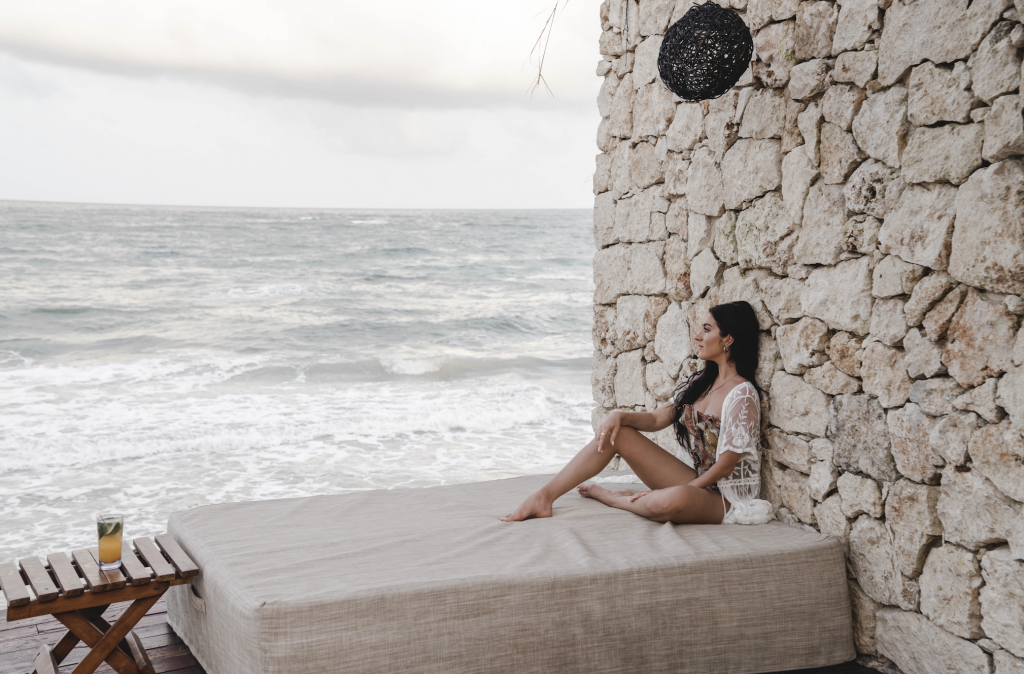
10 Tips for Traveling Safely During the Pandemic
After over 6 months of a self-imposed quarantine, I finally decided to take a trip to Tulum, Mexico. This decision wasn’t one I took lightly. Prior to my trip, I did my research and took many extra precautionary measures before I even left my apartment. For starters, knowing what Mexico’s requirements and guidelines for international travelers were a must! Which brings me to my first tip:
Tip 1: Check the Local Requirements and Guidelines Carefully
If you’re a US citizen, there are only a handful of countries that you can travel to right now. And while the options are limited, not every country has the same rules and regulations. For instance, only a few states in Mexico are currently open for non-essential travel. Additionally, many countries have varying requirements when it comes to testing.
The Maldives aren’t requiring travelers to get tested, but tourists can only visit the resort islands with a confirmed reservation at one. Once there, testing requirements are up to your chosen resort’s rules and regulations. While some countries require travelers to enter a 14-day quarantine, get tested, or a combination of both — some may require no testing at all. Regardless, if you’re taking a risk and hoping to board a flight, I highly recommend getting tested even if your destination doesn’t require you to (more on that later).
Tip 2: Choose an Airline that Goes the Extra Mile
Choosing an airline that goes above and beyond by protecting its passengers is crucial at this time. Although it has been proven that most viruses and germs do not spread easily on flights due to how the air is circulated and filtered on planes, choosing a reputable airline will give you peace of mind and add an extra layer of protection.
Delta, for instance, has been doing a great job at ensuring their guests’ safety. Not only do they have a rigorous cleaning and disinfecting process, but they are also blocking out middle seats until January 6th, 2021, to allow more space between passengers. Additionally, Delta offers guests peace of mind when booking their trip. They provide guests with flexibility, and a fee waiver if you wish to change your flight.
Qatar Airways is another airline that is taking additional measures to ensure their passengers’ safety. Make sure you research the airline’s cleaning protocols and additional safety measures before you book your flight. Pay attention to details such as mask requirements, change fee waivers, an updated refund policy, boarding procedures, and blocked middle seats.
Tip 3: Always Wear Your Mask
This goes without saying. Even if you’re not planning on hopping on a flight. If you’re stepping out of your house and into a public space, you need to wear a mask! Wearing a mask will keep you and those around you safe. And when you’re traveling through an enclosed space such as the airport, keeping your mask on is non-negotiable.
Many airlines also require masks on board, and many countries do require masks to be worn at all times while out in public spaces. Additionally, hotel and resorts will most likely require guests to wear a mask anywhere on their property. So be sure to research and obey the rules and regulations of your aircraft, transportation services, hotel, and destination if you’re choosing to travel currently.
*Remember to keep your face mask over both your nose and mouth.
Tip 4: Carry a Bottle of Hand Sanitizer
Do not get caught without a bottle of hand sanitizer at any given time. Keeping your hands clean is important to your health and safety, but washing them might not always be an option. Be sure to pack a bottle of hand sanitizer in your carry-on or backpack wherever you go. Make sure that your hand sanitizer contains over 60% alcohol.
Bonus: Did you know that TSA now allows 12 oz bottles of hand sanitizer in your carry-on? All other liquid products in your carry-on are still subjected to the 3.4 oz rule.
Tip 5: Avoid Frequently Touched Surfaces
Avoiding frequently touched surfaces, especially at the airport, restaurants, or hotels, is a great way to prevent picking up any germs on your hands. You can take extra measures at avoiding these surfaces by traveling with a carry-on only, and checking into your flight online.
And if you have Global Entry or TSA pre-check, you will be able to limit your touchpoints at TSA screening. You can also sign up for Clear, which allows you to move through airports with a touchless ID.
Tip 6: Avoid Close Contact with Anyone Who isn’t from Your Household
Stick with your designated travel circle. This means avoiding and limiting contact with anyone you don’t know. While masks are helpful, you still want to take extra precautions by putting distance between you and someone you do not know. Limit conversations with strangers, especially those who aren’t wearing masks. And if you do need to interact with someone, be sure to keep some distance between you.
Tip 7: Do Not Touch Your Eyes, Nose, or Mouth
As uncomfortable as it may be, avoid touching your eyes, nose, or mouth. Try to avoid adjusting your mask, rubbing your eyes, and resist scratching that itch! But if you absolutely must, make sure to wash your hands for at least 20 seconds, or use hand sanitizer both before touching your face and after.
Tip 8: Choose a Hotel With Rigid Protocols
Similar to selecting a reputable airline, you’ll want to make sure that your accommodation is taking extra precautions to ensure the safety of your guests. Research their cleaning protocols, what additional measures they’re implementing, and their overall commitment to your safety and health.
If you’re staying at an Airbnb, look for the “Enhanced Clean” label right below the property’s images. Airbnb’s “Enhanced Clean” program puts hosts through rigorous training and testing regarding new cleaning procedures and protocols. Hosts who complete the training and pass the test will have the new “Enhanced Clean” tag displayed on their listings. However, hosts can opt-out of participating in the “Enhanced Clean” program and training. But if they choose to do so, Airbnb hosts could decide to leave their listings unoccupied for 72-hours between guests. This will also be displayed under the property’s image section.
Tip 9: Opt for Outdoor Dining and Activities
Once you’ve arrived at your destination of choice, stick to outdoor dining, activities, and experiences. Remaining outdoors will make your job of social distancing very easy. However, if you have to be in an enclosed space such as a taxi, roll down the windows and keep your mask on. And while some restaurants do not accommodate outdoor dining, they may be restricting occupancy to allow for more distance between tables. Some restaurants may also only allow guests on a reservation-only basis. In this case, call or check the restaurant’s website ahead of time to see what their protocols are.
Tip 10: Get Tested Both Before and After Your Trip
Although you should apply all these tips to your travels, getting tested both before and after your trip is a must — even if your destination, hotel, or airline doesn’t require it. A huge reason why countries are opening up its borders again is because of a dependency on tourism for their economy. It definitely doesn’t mean that the pandemic is over.
So, if you choose to travel anywhere, you’ll need to make sure you aren’t the cause of the problem. Get tested before your trip to ensure that you aren’t an asymptomatic carrier, and get tested when you get back so you aren’t putting anyone else at risk.
Traveling Safely During the Pandemic
The longer traveling is at a standstill, the harder it is for tourism to bounce back. And in such times of uncertainty, many of us are just looking for hope. Although I’m not a medical professional, many of these tips are the same ones that the CDC suggests.
As time has proven, this pandemic isn’t going anywhere soon. However, it has also proven that by implementing strict protocols, we can continue traveling while slowing the spread. Although I am hesitant to encourage travel at this given moment, one thing’s for certain — traveling safely doesn’t look like it did before. It is our responsibility as travelers to adapt, change, and evolve. Protecting those around us, especially the locals of the destination you’re traveling to, needs to come first. So yes, traveling is possible, but only if you’re willing to take the proper precautions, not just protect yourself, but those around you as well.
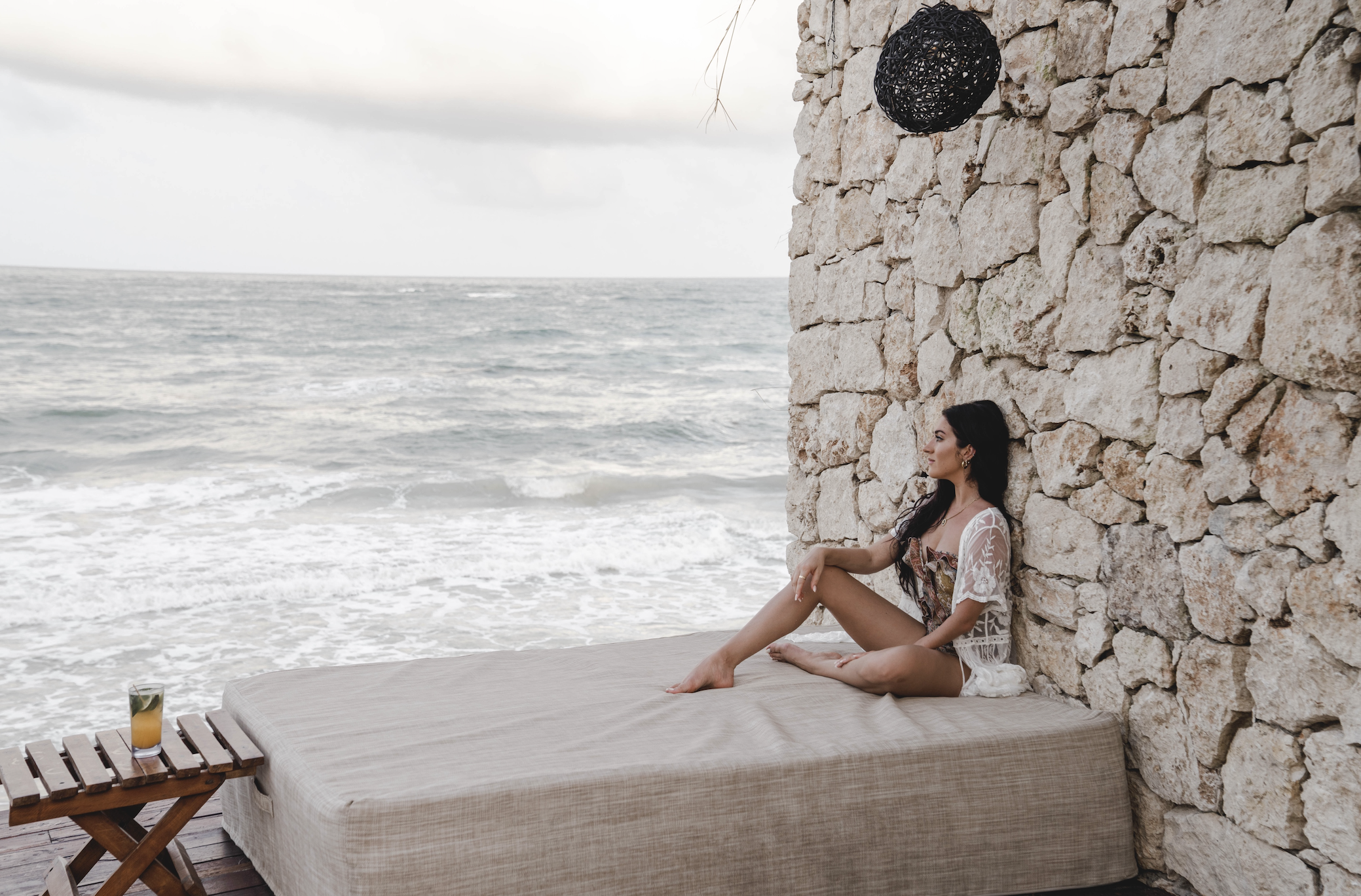
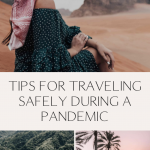

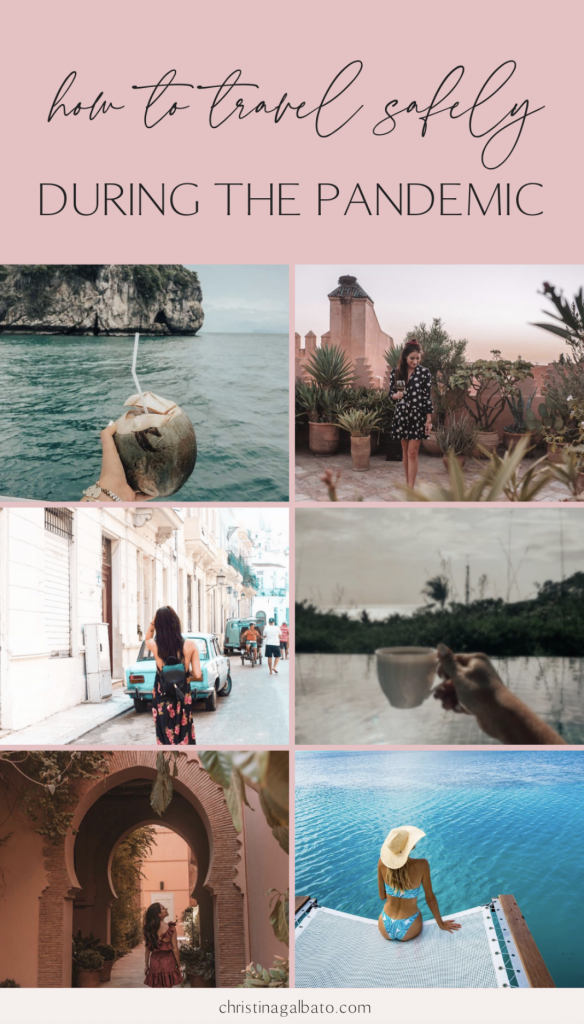
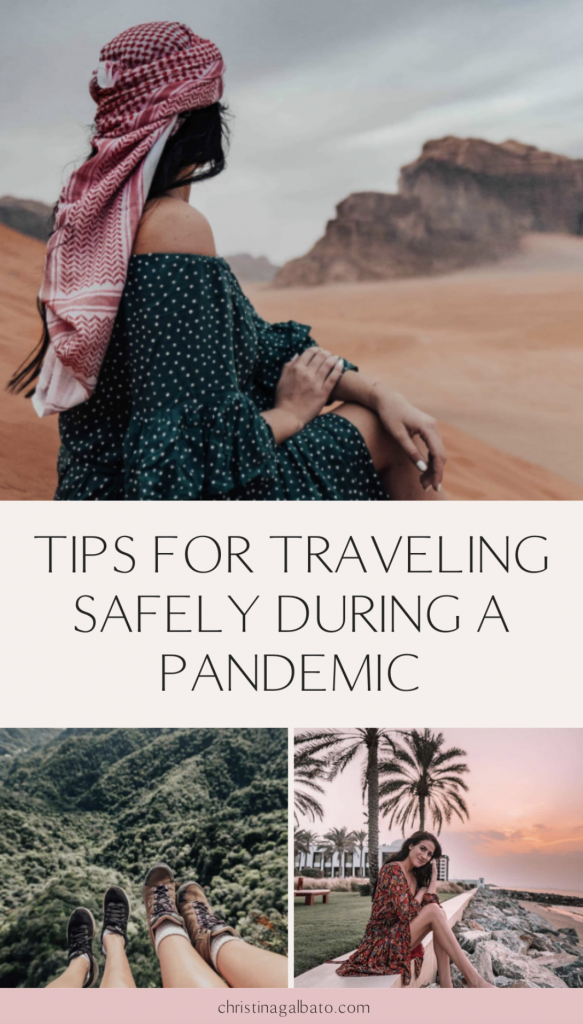
Thank you for writing a balanced, informative article about how we can travel safely. You’ve covered all of the essential steps and it’s so helpful. We need to adapt and take measures to keep us healthy, while supporting the tourism industry so it can survive.